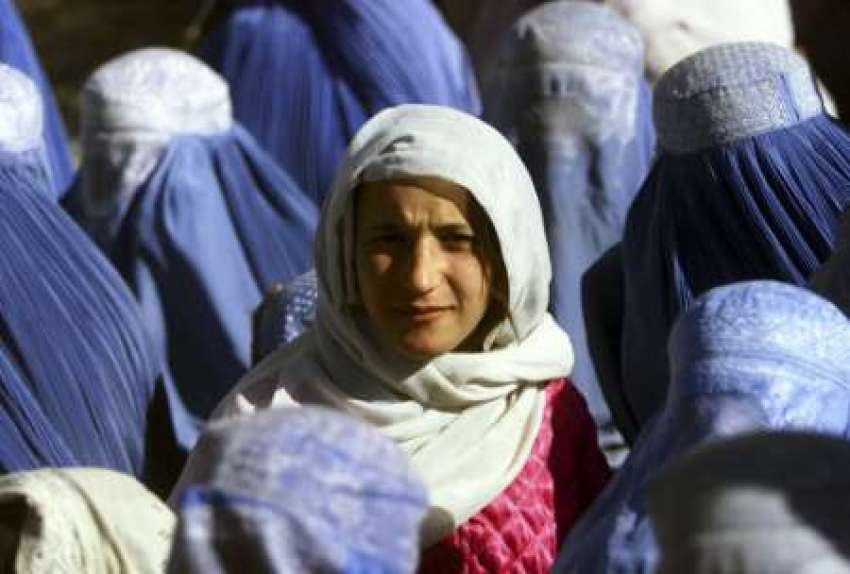Parents Upset Over Indiana School Worksheet That Paints 'Sharia Law' in Positive Light

Parents in southern Indiana have voiced their disapproval over a worksheet assigned to middle school students that they claim paints Sharia or Islamic law in oppressive countries like Saudi Arabia in a positive light.
According to the Courier-Journal, several parents spoke out against the worksheet assigned to seventh graders at Highland Hills Middle School in Georgetown, Indiana, during a recent New Albany-Floyd County school board meeting.
The worksheet in question features a passage attributed to a fictional 20-year-old woman from Saudi Arabia named Ahlima. In the passage, Ahlima states that she is "very fortunate" to be living under the rule of sharia law, which in many Muslim cultures is a strict religious code that governs the way Muslims dress and act. She goes on to explain that she will soon be married and become a man's second wife.
"I understand that some foreigners see our dress as a way of keeping women from being equal," the worksheet states. "But ... I find Western women's clothing to be horribly immodest."
As many in the West have warned about the dangers of sharia law, stating that it oppresses women and non-Muslims, one father told the school board that the worksheet is similar to praising Nazi Germany without mentioning the atrocities committed during the Holocaust.
"The way that the worksheet is left would be like describing how effective Hitler was at nationalizing Germany and creating patriotism but leaving out that he slaughtered 6 million Jews," parent Dean Hohl was quoted as arguing at the meeting.
Parent Jon Baker explained that the worksheet that his daughter received is almost like a "propaganda" piece.
"If you read that, you would think everything's wonderful in that world," Baker said.
Under some versions of Sharia law, men are allowed to have multiple wives, while women are often stoned to death for adultery or punished for leaving home without being accompanied by her husband, father or closest male relative. Additionally, women who are not married can be lashed if they have relations out of wedlock. There are also strict consequences for apostasy and blasphemy.
Saudi Arabia made international headlines when it jailed atheist blogger Raif Badawi and sentenced him to receive 1,000 lashes because of accusations that he insulted Islam.
Middle East Eye, an independently funded online news organization, compared the punishments under the Saudi penal code to that of the strict brand of Sharia law enforced by the Islamic State in Iraq and Syria. It found striking abusive similarities in both penal codes.
"I'm just not OK with my daughter – or any child that age – leaving class with the understanding that anything about Sharia law is OK," Hohl added, stating that his daughter told him that the purpose of the worksheet was to teach students to identify stereotypes. Hohl said he travels to Malaysia for work and knows what kind of impact Sharia law has on the court system there.
"Let's tell the whole truth," Hohl said. "Let's help people understand what's really happening and what the rest of the world is like so when they are interacting with the rest of their global peer group, we can reduce the likelihood of conflict and misunderstanding."
Bill Briscoe, a school district spokesman, told the Courier-Journal that they are now reviewing the curriculum after receiving complaints.
The particular worksheet was created by InspireEd Educators, Inc. and also caused a stir amongst parents in Smyrna, Georgia.
The worksheet was created by the president of InspireEd Educators Sharon Coletti. She told the Courier-Journal that she has received death threats after the controversy in Georgia.
Coletti explained that she developed the lesson over 20 years ago when social studies standards required that students learn about Middle East culture. She said that the fictional passage is based on a news interview she had seen of a Muslim woman who had a positive outlook on Sharia law.
The initial curriculum called for the worksheet in question to be paired with another worksheet of an Israeli woman offering her perspective. The goal was to engage students in critical thinking and force them to come to their own conclusions about Middle East culture.
She said the ultimate goal was for students to come to the conclusion that Israel has more rights and freedoms than Saudi Arabia.
"If I can shape something so that kids have to decide for themselves, once I get them involved in the situation, they never forget it," Coletti said.
Coletti explained that the controversial worksheet will be removed from the curriculum because of the backlash it has received.


























